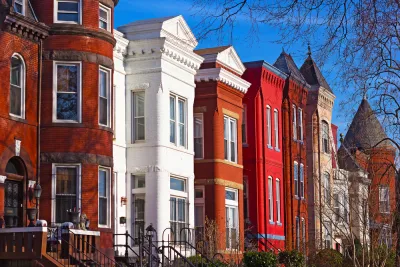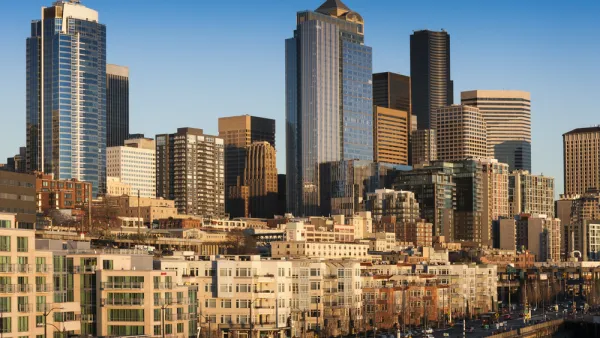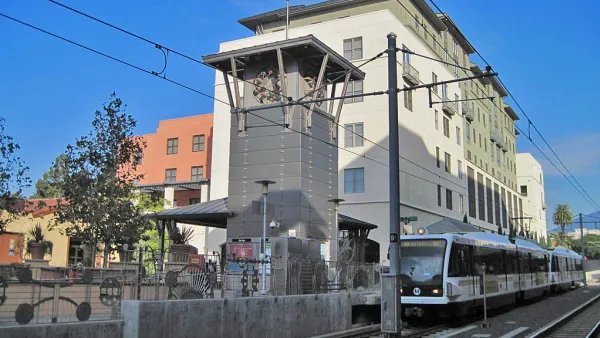As new construction favors single occupants and childless professionals, the capital's housing stock is increasingly boxing out families.

There are signs that D.C.'s housing stock is becoming less family-friendly. Mark Chambers writes, "According to an Urban Institute study, four and five bedroom units make up only eight and four percent of the homes in the city, respectively. Given that almost 12% of families that rent have four or more people, even the unsubsidized market for multi-bedroom rental homes is fairly tight."
Why is this happening? Developers can make greater profits catering to the professional demographic living in one- and two-person households. Building small but "luxury" units for them increases the rate of return on larger developments. At the same time, older buildings contain many of the units with three or more bedrooms. When they're redeveloped, one to two bedrooms becomes the norm.
"Finally, a more insidious and dangerous trend is appearing: language that implies the idea that families with children don't belong in neighborhoods with childless millennials and empty nester baby-boomers." Chambers advocates changes to the Comprehensive Plan to address the problem.
FULL STORY: Let’s make sure there are homes for families in DC

Analysis: Cybertruck Fatality Rate Far Exceeds That of Ford Pinto
The Tesla Cybertruck was recalled seven times last year.

National Parks Layoffs Will Cause Communities to Lose Billions
Thousands of essential park workers were laid off this week, just before the busy spring break season.

Retro-silient?: America’s First “Eco-burb,” The Woodlands Turns 50
A master-planned community north of Houston offers lessons on green infrastructure and resilient design, but falls short of its founder’s lofty affordability and walkability goals.

Test News Post 1
This is a summary

Analysis: Cybertruck Fatality Rate Far Exceeds That of Ford Pinto
The Tesla Cybertruck was recalled seven times last year.

Test News Headline 46
Test for the image on the front page.
Urban Design for Planners 1: Software Tools
This six-course series explores essential urban design concepts using open source software and equips planners with the tools they need to participate fully in the urban design process.
Planning for Universal Design
Learn the tools for implementing Universal Design in planning regulations.
EMC Planning Group, Inc.
Planetizen
Planetizen
Mpact (formerly Rail~Volution)
Great Falls Development Authority, Inc.
HUDs Office of Policy Development and Research
NYU Wagner Graduate School of Public Service




























